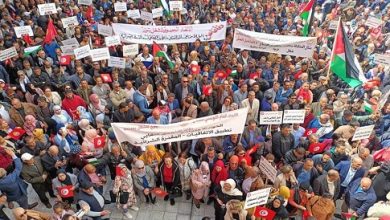Building humanity’s common future

Politics rather than policy is clouding the biosphere of most countries in the Islamic world. Science policy in the Arab region is not stable due to instability of the region.
The question is how the 2030 agenda for sustainable development (UN-SDGS), can pave the way for global peace and prosperity with such political instability. Does stability come with policies in science, technology, and innovation (STI) to create the “niche” of political stability that the Islamic world has hardly enjoyed?
There are areas where some countries in the Islamic world has succeeded in providing political stability with sound policies, and has created a stable democratic governance with change and continuity, and emerged strongly in STI and economy.
Malaysia is a country which has succeeded in generating wealth per capita to overcome unemployment and poverty and to compete with OECD countries and has developed a unique democratic system with full participation of all segments of the society based on tolerance, equity, and justice.
They have created a sustainable political system leaving no one behind with sound policies in economics, science, technology, and innovation (STI), generating high-tech exports dependent heavily on the R&D and technology transfer. This is a model which could be studied carefully for prosperous and future progress of the Islamic Umma.
The Islamic world cannot live on the glories of the past, although we have to underline the success stories in our history to give us the impetus to trigger with vigour the development of our present and future quality of life and put human dignity, at the center of development.
The Islamic world faces problems in knowledge-use more than in knowledge creation. Without translating academic research into policy and public awareness, research will be read by few people who constitute the elites who are disconnected from the masses of the society.
The Islamic world cannot live on the glories of the past, although we have to underline the success stories in our history to give us the impetus to trigger with vigour the development of our present.
There is a gap between scientists and policy/decision makers. Universities are the centers of creating knowledge and its transmission, and where minds are shaped. The creation of knowledge occurs through research, free-thinking, exploration, and the exchange and debate of ideas.
The transmission of knowledge is done by teaching and training of the next generation, which not only receives the distilled, confirmed facts and theories in various branches of knowledge, but also learns to dissect them, check for any flaws, and construct more robust frameworks of knowledge for the world.
In addition to the knowledge production and scholarship and the shaping of critical and creative minds, one of the main goals and raisons d’être of universities worldwide is to develop within society a culture of inquiry, intellectual rigour, and promotion of evidence and merit.
This spirit is what led to the Islamic Golden Age of science. Indeed, the Muslim world is widely credited for having established the first universities in the world, going back as far as 859 AD.
And indeed, those universities created knowledge by translating books from scholars of previous civilisations, by hosting scholars and giving them the means and the freedom to explore all the ideas that they wished to analyse, and by training students and disciples in intellectual work, from the purely philosophical, theological, or theoretical, to the most directly applicable techniques.
However, after a Golden Age of knowledge and science that lasted many centuries, the Islamic world went through a long period of decline, which was followed by Western colonization, and by the 20th century, it was trailing all other nations in knowledge production and dissemination.
Today, and after huge efforts (financial and otherwise), only a few universities from the Arab world can be found in the Top 400 of the major world university rankings, and none in the Top 100.
New knowledge, particularly knowledge related to technology, drives the economic systems. Economic agents, including firms and governments, are forced to adapt to technical change in order to survive in a competitive environment.
While governments should act as facilitator, technology capabilities must accumulate in enterprises.
This will only be possible if we strengthen our universities and R&D organizations and create effective linkages between them and industry. It will be the increasing use of knowledge in the production processes and service industry which will determine the growth of our GDP.
Our ability to compete or survive in the globalization of economic systems depends on our commitment towards the development of our human capital and ensuring a continuous learning process within the government institutions and enterprises to create a culture of innovation.
Innovation is concerned with enhancing national productivity and national competitive performance.
Dynamic innovation systems involve interplay between a number of different parts of the society which include the government, private sector, universities, and research institutions.
The transition of our economy from an agriculture-based economy to a knowledge-based economy involves a mosaic of complex interactions in which a large number of players would be involved.
The universities will need to play a central part in this transition through knowledge creation, its use and diffusion of new knowledge into the society through establishment of technology parks, business incubators, access to venture capital, and other such schemes.
The new world order requires us to prepare our children to face the challenges of the global economy.
This involves a substantially different type of education to be imparted, focused not only on the mastery of subject matters but also on the development of the various other skills such as the ability to think critically, innovate, communicate effectively, work effectively in teams, develop entrepreneurship and risk-taking skills, and the ability to face and manage changes in a flexible manner.
This would require a massive focused national effort.
I have no doubts that the cross-fertilization of ideas coming out from this conference will enhance our ability to pursue the development of the quality of life for the Umma.
HRH Prince El Hassan Bin Talal is former crown prince of Jordan. This article is an abridged version of an address delivered at the 21st Scientific Conference of the Islamic World Academy of Sciences held in Konya, Turkey on October 7.
Dhaka Tribune




